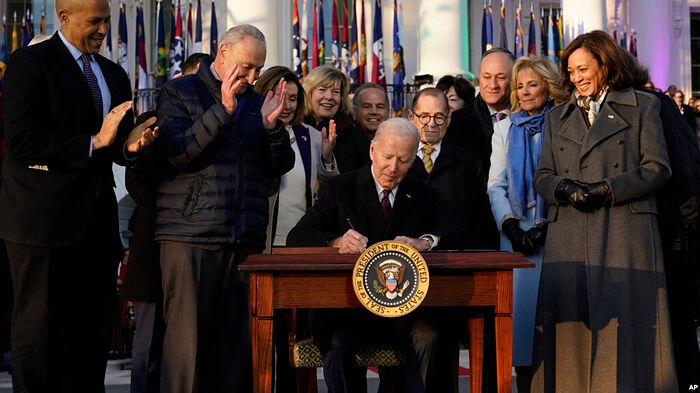Washington, D.C., December 14, 2022
President Joe Biden signed the Respect for Marriage Act into law yesterday, which provides certain guarantees for gay marriage at the federal level.
The new law repeals the 1996 Defense of Marriage Act that defined marriage as between a man and woman and requires states to recognize gay marriages performed in other states. At the same time, it doesn’t prevent states from passing their own laws banning gay marriage, reports Voice of America.
The U.S. Supreme Court legalized gay marriage nationwide in 2015 with its Obergefell v. Hodges, but pro-gay activists began to worry after the Court overturned Roe v. Wade in June.
In his concurring opinion, Justice Clarence Thomas said that other decisions based on the right to privacy, such as the right to gay marriage or to birth control, could be overturned on the same basis as the right to abortion.
Thus, lawmakers jumped into action and drafted the Respect for Marriage Act, which eventually passed through the Senate last month and the House of Representatives earlier this month with bi-partisan support in both Houses.
If taken at face value, the bill seems to protect religious freedom. Section 6(b) reads:
Consistent with the First Amendment to the Constitution, nonprofit religious organizations, including churches, mosques, synagogues, temples, nondenominational ministries, interdenominational and ecumenical organizations, mission organizations, faith-based social agencies, religious educational institutions, and nonprofit entities whose principal purpose is the study, practice, or advancement of religion, and any employee of such an organization, shall not be required to provide services, accommodations, advantages, facilities, goods, or privileges for the solemnization or celebration of a marriage. Any refusal under this subsection to provide such services, accommodations, advantages, facilities, goods, or privileges shall not create any civil claim or cause of action.
But not all are persuaded. Some commentators argue, for instance, that, “In expansive language, the bill offers vague promises that, in turn, assert protections already in place, address arguments no one was making, or leave religious schools and organizations extremely vulnerable.”
Follow OrthoChristian on Twitter, Vkontakte, Telegram, WhatsApp, MeWe, and Gab!





